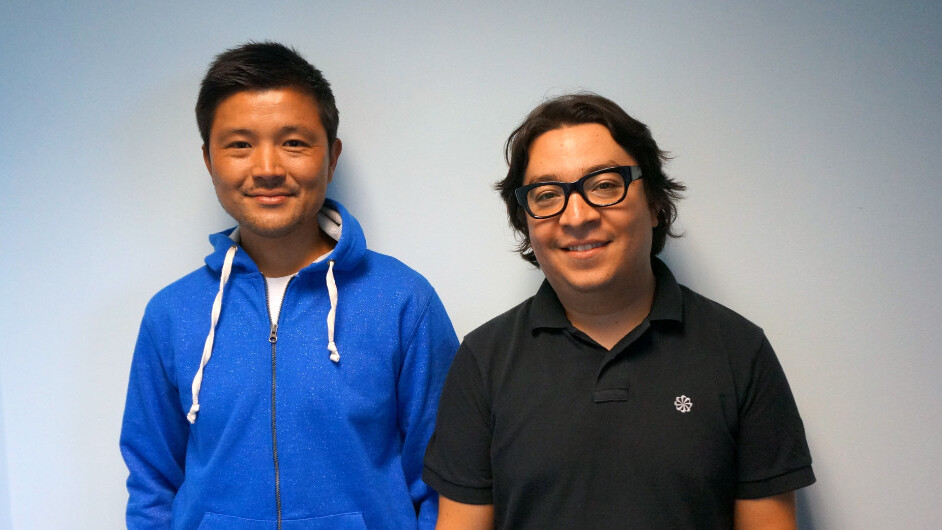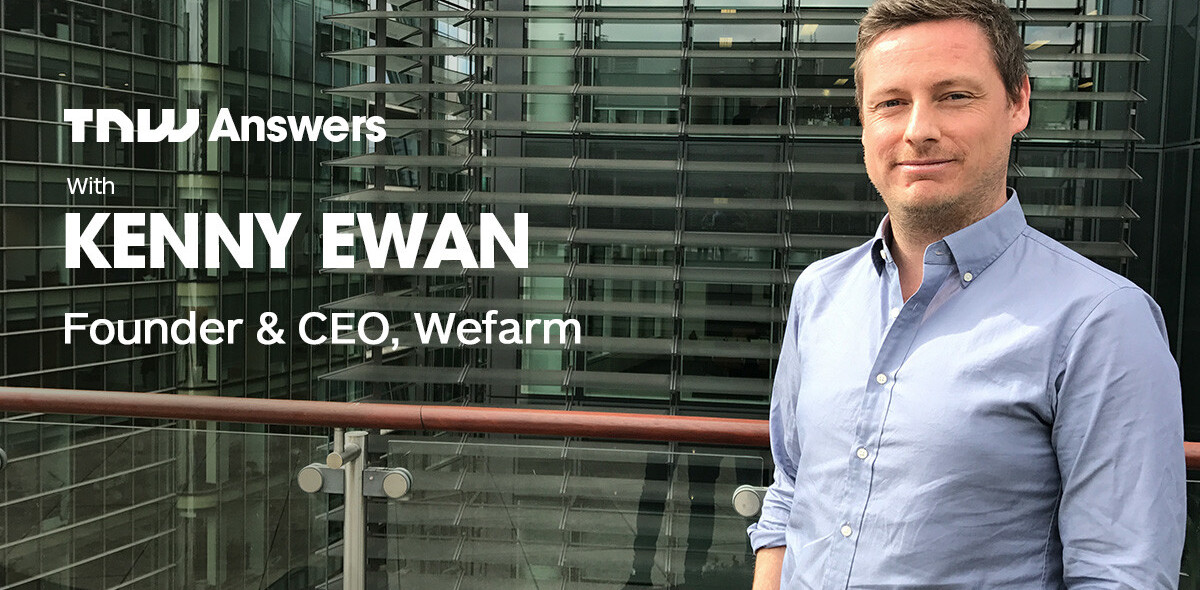
Earlier this month, Facebook added video to Instagram, instantly turning the photo-sharing app into a competitor to Twitter-owned Vine. The battle between these two Internet giants is not new, but it is interesting to see that its latest chapter revolves around micro-video sharing.
Instagram and Vine are not the only apps fighting for this growing segment. No later than a couple of weeks ago, a new video messaging app called Unda made its appearance in the App Store, with support and funding from 500 Startups.
Unda’s purpose is to let users easily send video messages to their friends from their smartphone. The duration of each message is limited to 10 seconds, right between Vine’s 6-second clips and Instagram’s 15-second videos.

Connecting videos and communication
Unda is the brainchild of Nao Tokui and Oscar “Akira” Yasser, who had a gut feeling that mobile video sharing was set to explode.
“It’s actually funny it took so long,” Yasser told TNW. “We all knew that mobile video was happening, with video becoming one the main drivers of data consumption. After consumption comes creation, so it was a no-brainer that it was coming.”
While many startups tried to become the “Instagram of video,” Yasser was rightly aware that Instagram was best placed to occupy that spot. On the other hand, he noticed the rise of messaging apps, and this is how Unda was born.
As he half-jokingly noted in a blog post, if Vine and Whatsapp had a son, it would probably look like Unda. This is not just name-dropping: Unda is as much about video as it is about messaging.
This vision is also reflected in the app’s name, which means “wave” in Latin. “We were inspired by the concept of the message in a bottle. In a way, Unda is the message in a bottle of the 21st century. The difference is that you can now choose who to send it to, but we love the analogy,” Yasser noted.
Unlike FaceTime and other products which offer real-time chat, Unda’s core feature is asynchronous video. According to Yasser, this has several advantages, starting with the fact that users don’t need to be online at the same time with a fast and stable connection.
This is also what Skype is offering with its video messaging feature, which it updated earlier this month with several improvements. Still, its UI doesn’t compare with a mobile-first product like Unda. For instance, the fact that Skype doesn’t put a cap on message duration is not necessarily the best approach for mobile users.
Conversely, Unda’s decision to limit messages to 10 seconds is not random. It was based on several factors, such as the average network speed and monthly data packages — not to mention ever-shorter attention spans.
Yasser explains that Unda is fine-tuned for nowadays mobile users: “Our UX is built for sharing video quickly; you don’t have anything else in the middle, because we are entirely focused on doing this and doing it well.”
Hands-on with Unda
Unda’s navigation is quite intuitive and thumb-friendly. If you have ever used Vine, you won’t be surprised to hear that all you need to record a message is to tap your phone’s screen and hold for a few seconds. You can also exchange messages with several contacts at once, since you don’t need to wait for the first video to be fully uploaded to start recording a new one.
Received and sent messages are organized as conversations with each of your contacts, and you can simply swipe down in any thread to send a new video response. This is another difference between this app and Instagram: while you may argue that the latter is organically becoming a messenger, Unda was built with this purpose in mind.
In practical terms, Unda’s messages are meant to be sent to one friend or a handpicked group of contacts, rather than broadcast to the world. Besides the front-facing camera, the app also supports your phone’s rear-facing camera to let you share a picture of your screen with your co-workers, or ask your significant other whether you should buy those shoes.
Like many other social apps, Unda only becomes really useful once your closest friends start using it. As such, it offers you several ways to invite your contacts, for instance by sharing your username or by sending a video that your friends will only be able to see if they download the app. Once they do, you will get a notification that you can now exchange messages with them.
According to Unda’s team, this feature helped Unda reach its first milestones; it only took it one week to reach 5,000 users, many of them immediately became active. These shared 10,000 video messages during Unda’s first week of activity — around one video per minute.
From 500 Startups to the world?
The nationalities of Unda’s creators may surprise you: while Tokui is a Japanese developer, Yasser is a Mexican serial entrepreneur. However, he is also a notorious video game nerd, who was living in Japan when he met Tokui.
A few months ago, he decided to pitch his latest project to his longtime friend, and the pair started to work together in stealth mode last November. They also got some help from Bandtastic’s and Cloudspotting’s founder Luis “Lulo” Lopez, who made a significant contribution to Unda’s design.
Fast-forward a few months, and Tokui and Yasser are now working from 500 Startups’ workspace in Mountain View, CA. Their ticket to Silicon Valley took the form of a meeting with 500 Startups’ Mexican venture partner César Salazar; upon seeing the app, he asked Unda’s team whether they’d consider joining 500 Startups in the US. Dave McClure himself happened to be visiting Mexico a few days later, and confirmed that Unda was invited to belatedly join its sixth batch of companies.
While 500 Startups also operates in Mexico, Yasser believes that its Silicon Valley program was a better fit for Unda. This doesn’t mean that it is prioritizing the American market; according to Yasser, both his team and 500 Startups’ agree that Asia and Latin America may well be more relevant.
This move to the US also has to do with the resources that Unda will need to scale. Following its latest update, its iOS version is now available in English, Japanese, Korean, Portuguese, Simplified Chinese and Spanish. In addition, it always had planned to be available on more than one platform, and the team is already working on an Android app.
It is interesting to note that Tokui and Yasser envision Unda as the first product to be launched by their new mobile venture, Pocket Supernova Inc. Don’t hold your breath for the next app, though: Unda will remain the team’s sole focus for the time being, and it is currently gearing up for 500 Startups’ Demo Day at the end of July.
Get the TNW newsletter
Get the most important tech news in your inbox each week.







